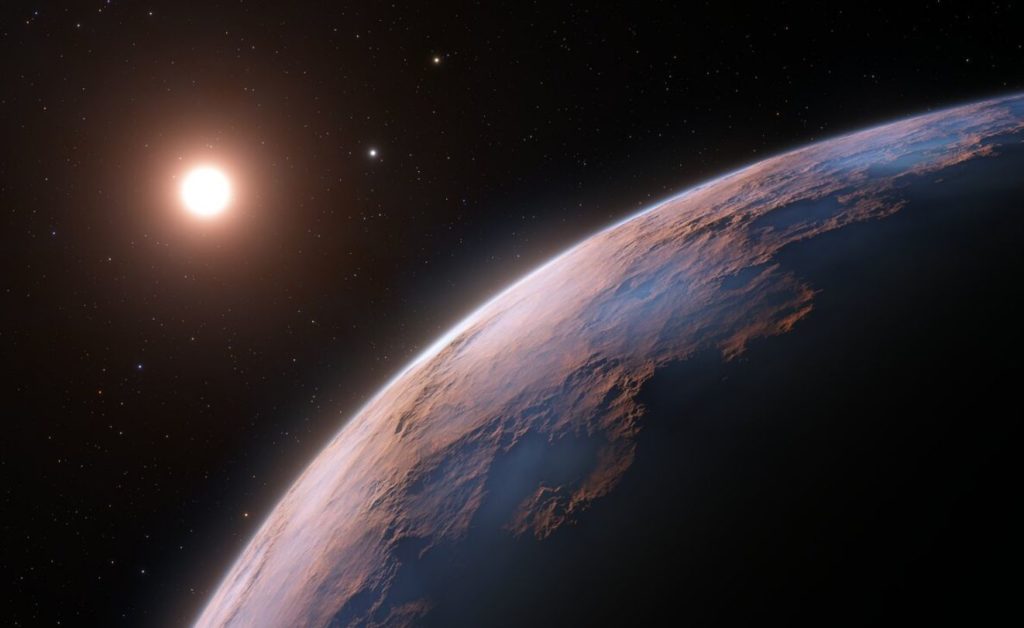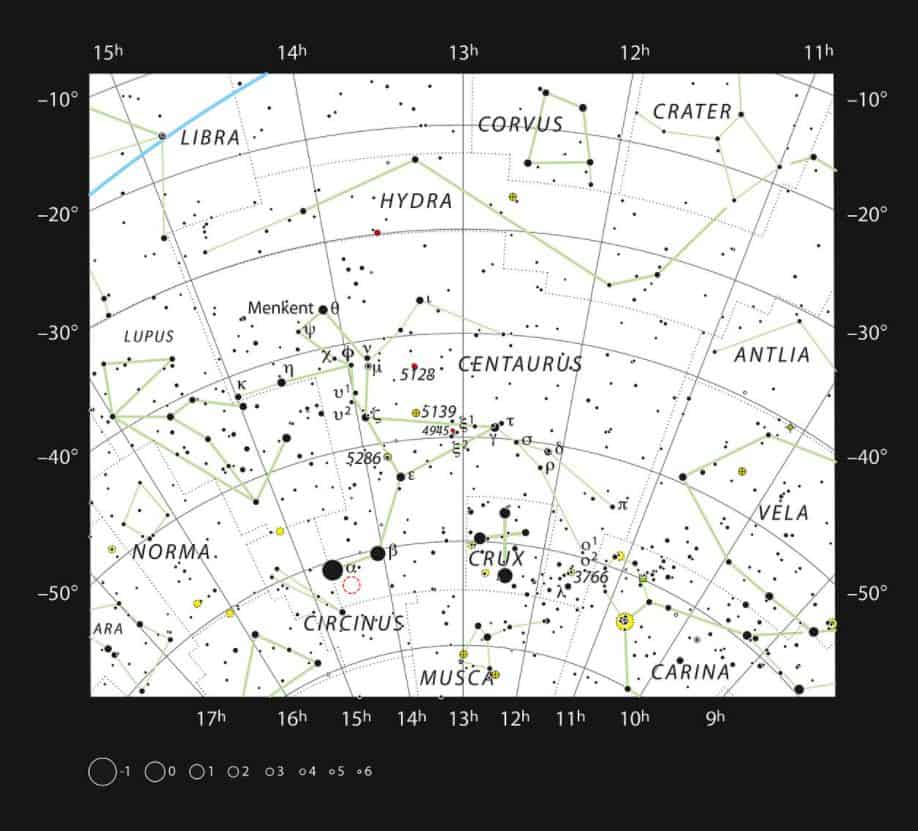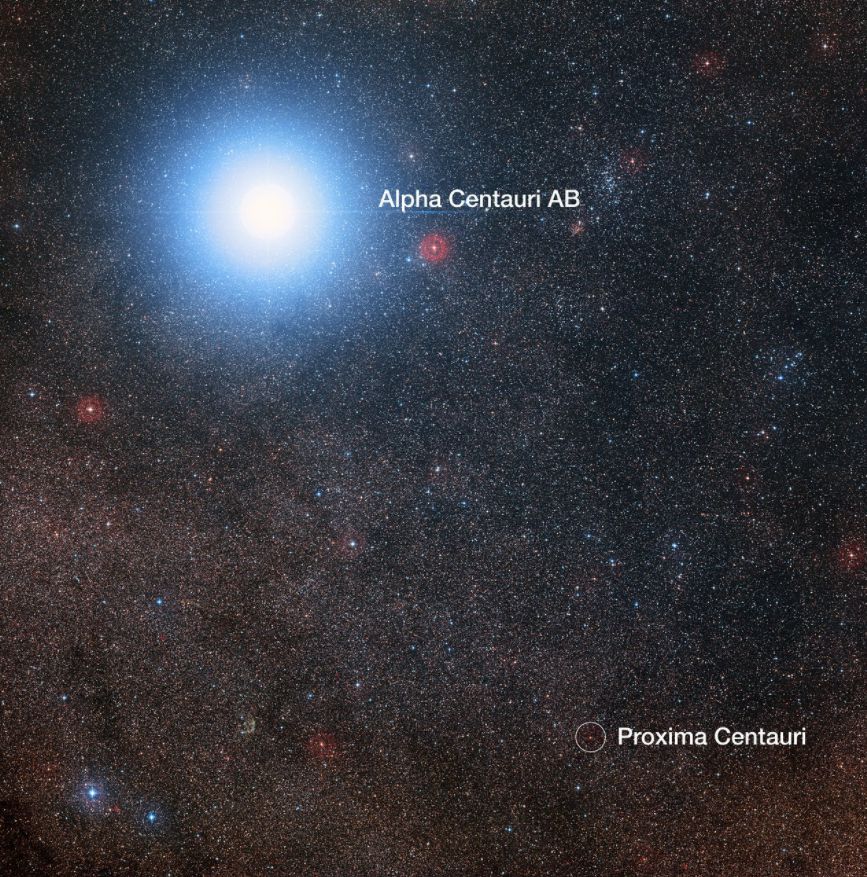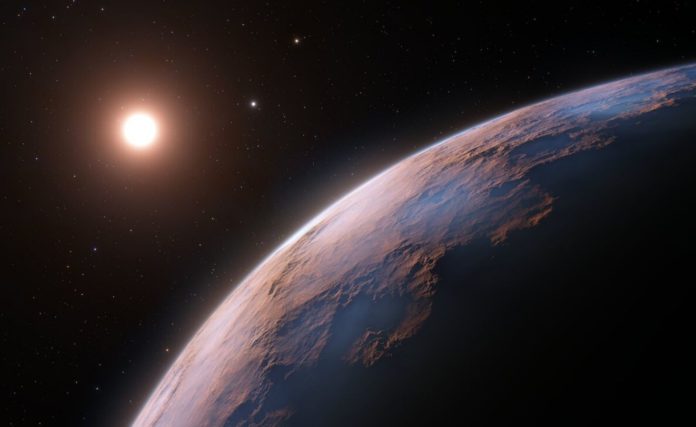The planet is also one of the lightest exoplanets yet discovered, weighing only a fourth of Earth’s mass.
Astronomers using the European Southern Observatory’s Very Large Telescope (ESO’s VLT) in Chile discovered evidence of another planet around Proxima Centauri, our Solar System’s closest star.
This candidate planet is the third identified in the system and the lightest yet discovered around this star. The planet is also one of the lightest exoplanets yet discovered, weighing only a fourth of Earth’s mass.
With a distance of slightly over four light-years, Proxima Centauri is the nearest star to the Sun.
Proxima d, the newly discovered planet, orbits Proxima Centauri at a distance of around four million kilometers, less than a tenth of the distance Mercury is from the Sun. It flies between the star and the habitable zone — the region surrounding a star where liquid water can exist on a planet’s surface — and completes one circle around Proxima Centauri in just five days.

The star is already known to house two more planets: Proxima b, a planet with a mass comparable to Earth that rounds the star every 11 days and is located within the habitable zone, and candidate Proxima c, which orbits the star in a five-year orbit.
Proxima b was found with the help of the HARPS instrument on ESO’s 3.6-metre telescope a few years ago. The discovery was confirmed in 2020 when scientists used new equipment on ESO’s VLT, the Echelle SPectrograph for Rocky Exoplanets and Stable Spectroscopic Observations (ESPRESSO), to investigate the Proxima system with higher precision. Astronomers discovered the first signs of a signal belonging to an object with a five-day orbit during these more recent VLT measurements. Due to the low signal, the researchers needed to undertake follow-up observations with ESPRESSO to ensure that it was caused by a planet and not merely a result of star fluctuations.
“After obtaining new observations, we were able to confirm this signal as a new planet candidate,” Faria adds. “I was excited by the challenge of detecting such a small signal and, by doing so, discovering an exoplanet so close to Earth.”

Proxima d, with a mass of only a quarter that of Earth, is the lightest exoplanet yet identified using the radial velocity approach, surpassing a planet discovered lately in the L 98-59 planetary system. The method works by detecting minuscule wobbles in a star’s velocity caused by the gravitational pull of an orbiting planet. Because the gravity of Proxima d is so small, Proxima Centauuri moves back and forth at about 40 centimeters per second (1.44 kilometers per hour).

“This achievement is extremely important,” says Pedro Figueira, ESPRESSO instrument scientist at ESO in Chile. “It shows that the radial velocity technique has the potential to unveil a population of light planets, like our own, that are expected to be the most abundant in our galaxy and that can potentially host life as we know it.”
Source: 10.1051/0004-6361/202142337
Image Credit: ESO/L. Calçada
You were reading: Astronomers Find New Earth-like Planet Orbiting Between Star And Habitable Zone
